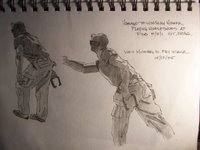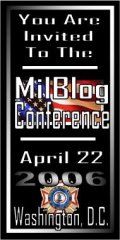The Mind of a Liberal

In an earlier post, I quoted Mike Fay (Fire and Ice) and he paid me the compliment of responding with a very thoughtful comment. He's had up-close-and-personal experience with liberal elitists who discredit and disparage his art simply because of his work attire. At a showing in the Farnsworth Art Museum, he had a "peer" accost him saying "The fact that he would come not dressed as an artist, but as a Marine is an affront". It seems that one can’t be a true artist and wear the uniform of the USMC. I think WO-1 MD Fay is one heck of an artist and have used some of his work as illustrations here. Click on the images to go to the posts from whence I stole them.
This also got me thinking about a post I’ve been contemplating for quite some time. Over the years I’ve observed liberals, it’s occurred to me they have a singular characteristic: they know everything. The DNC is one big pack of Cliff Clavins, espousing its infinite knowledge, oblivious to the snickers, chortles, and rolled eyes of the tolerant audience.  They’re a lot like teenagers.
They’re a lot like teenagers.
I remember being a teenager. I knew everything there was to know by the time I was 15. My parents were as dumb as bags of rocks. My teachers? Bah – the fools! All adults were hopeless idiots when challenged by my superior intellect! The stupid people knew I was right and only disagreed (or doled out punishment) because they were jealous of me. Why, even Mom said I was smart!
Then I grew up. Funny how that happens to most of us. The more you learn, the more you realize you still don’t know. The best/weirdest part is when you acknowledge how smart your parents have always been and that they played your “tolerant audience” so well.
It’s my theory that liberals never mature intellectually past the age of 15. They’re stuck in an everlasting puberty; a quagmire of self-centered, egotistical need with too few trusty mirrors to  reflect the ideal image of themselves. Of course, things like tradition, heritage, honor, duty, faith, and responsibility—you know, stupid adult stuff—are anathema to someone who has much better ideas about life and how it should be led by others.
reflect the ideal image of themselves. Of course, things like tradition, heritage, honor, duty, faith, and responsibility—you know, stupid adult stuff—are anathema to someone who has much better ideas about life and how it should be led by others.
What had been merely an hypothesis was elevated to Theory when I read an essay published in Commentary (Oct. 2003) by the great Constitutional scholar Alan Dershowitz. His piece was part of a collection of essays from many authors all concerning the direction of the Supreme Court in the wake of some recent controversial rulings (Grutter v Bollinger [the Michigan Law School minority quota case] and Lawrence v Texas to name a few). As one might expect, Dershowitz thought the SCOTUS was correct to interpret the Constitution in these cases anyway they wanted.
These are long excerpts, but there's no free link to the original from Commentary.
Few subjects engender more results-oriented hypocrisy than the role of the judiciary in a democracy and the related issues of “states’ rights” and “original intent.”So far, so good.Conservatives rail against elitist courts that overrule majoritarian decisions only when these conservatives agree with the political majority and disapprove of the actions of the unelected “legislators in robes.” Liberals condemn the activism of judges who strike down legislation of which they approve, or who substitute their own politics for those of the political branches of the government.

… When, in the early 20th century, progressive state and federal legislatures were enacting social-welfare laws that were being struck down by conservative courts, progressive academics praised judicial restraint and the “passive virtues” of such doctrines as “standing,” “case and controversy,” “mootness,” and “political question.” Decades later, when liberal courts were striking down conservative legislation—especially in the areas of abortion, religion, criminal justice, and civil rights—liberal academics praised judicial activism, while conservatives condemned it.Something tells me those progressive academics were not that free with their praise of the courts that struck down FDR’s socialist schemes, but I haven’t done the research to prove it.
The Supreme Court’s activist intervention in the 2000 presidential election was condemned by liberal activists who disapproved of the result, and praised by at least some conservatives who approved of the result. Now conservatives are demanding that the federal government deny to the states the power to define marriage so as to include same-sex unions, despite the historical fact that family law has traditionally been the sole province of the states.First, I clearly remember seeing the good professor blowing his stack on TV when the Supremes handed Gore his miserable defeat in 2000. In that case, Dershowitz labels them an "activist court". Second, he kinda leaves out the activist court's roll in the same-sex marriage case. That would have been fine and dandy had the Massachusetts high court allowed the legislature to act in its “sole province” as the representative of the State’s people. But noooooo, in this instance it's much better for the pointy headed ones to make up new Constitutional rights and force the elected ones to make the law stick.
In light of this pervasive hypocrisy on all sides, is it actually possible to devise an approach to judicial review that is not politically or personally results-oriented?clearing away the obstacles to political change erected by the majority - We can’t let the great unwashed masses of stupid people decide things for themselves. We must get rid of the mechanisms by which they override our superior plans and then we, the elite minority, can fix this “malfunctioning” political process.John Hart Ely, in his classic book Democracy and Distrust (1980), came closest to providing a justification for politically neutral judicial checks on popular democratic actions. The proper function of the judiciary, according to Ely’s theory, is to protect the integrity of the process by (1) clearing away the obstacles to political change erected by the majority and (2) facilitating the representation of minorities in the face of prejudice in the political marketplace. By assigning to the courts the role of opening the channels of democracy and protecting minority groups that, as a result of a “malfunctioning” in the political process, are incapable of protecting themselves, Ely confined issues of constitutional interpretation to questions of participation—rather than to the “substantive merits” of the political choices under attack.
This next part takes the cake.
What about original intent? There is a wonderfully resonant story in the Talmud that casts an interesting light on this contentious issue. Rabbi Eliezer was engaged in anThe dream of every teenager! Oh, to have your parents roll over and admit that you are way too smart for them!acrimonious dispute with his fellow sages about a point of law. Eliezer “brought forward every imaginable argument, but [the others] did not accept them.” Finally, in desperation, he invoked the original intent of the Author of the Torah. Eliezer implored: “If the law agrees with me, let it be proved from heaven!” Whereupon, a heavenly voice cried: “Why do you dispute with Rabbi Eliezer, seeing that . . . the law agrees with him?” But the other rabbis rebuked God for interfering in this human dispute: “You have already written the Torah [and] we pay no heed to a heavenly voice.” The message was clear. God’s children were telling their Father: it is our job to give meaning to the Torah that You gave us. You gave us a document to interpret, and a methodology for interpreting it. Now leave us alone. And, according to the Talmud, God agreed, laughing with joy: “My . . . children have defeated Me in argument.” (Ellipses in original text)
No single person drafted the Constitution. Our contemporary rabbis in robes cannot call for a heavenly voice to confirm the correctness of their constructions of such terms as due process, equal protection, freedom of speech, or cruel and unusual punishment. But I wonder whether Jefferson, Madison, and Hamiltonwould not respond to a contemporary Eliezer’s call for authoritative interpretation by declining to interfere and by saying: “It is a constitution you must expound. We wrote its phrases long ago in a different era. Pay no attention to those who would invoke voices of certainty from the grave or the heavens.”
... a judiciary confined by the narrow visions of a past generation is a judiciary incapable of adapting to new dangers unforeseen by the framers.
 I think the only "unforeseen dangers" the Founders failed to envision was how far our tolerance would allow the kids to go before we decided it was time to make them go to their rooms without supper.
I think the only "unforeseen dangers" the Founders failed to envision was how far our tolerance would allow the kids to go before we decided it was time to make them go to their rooms without supper.














<< Home